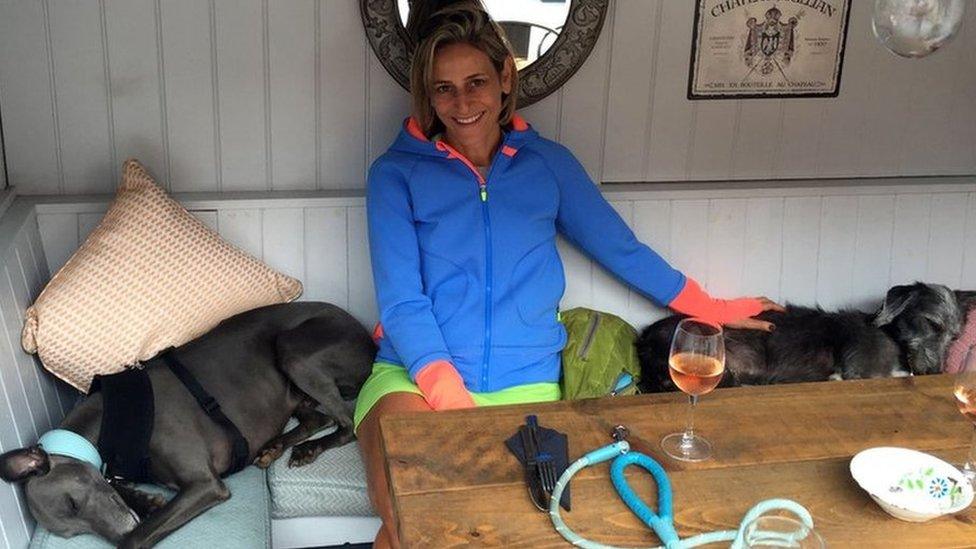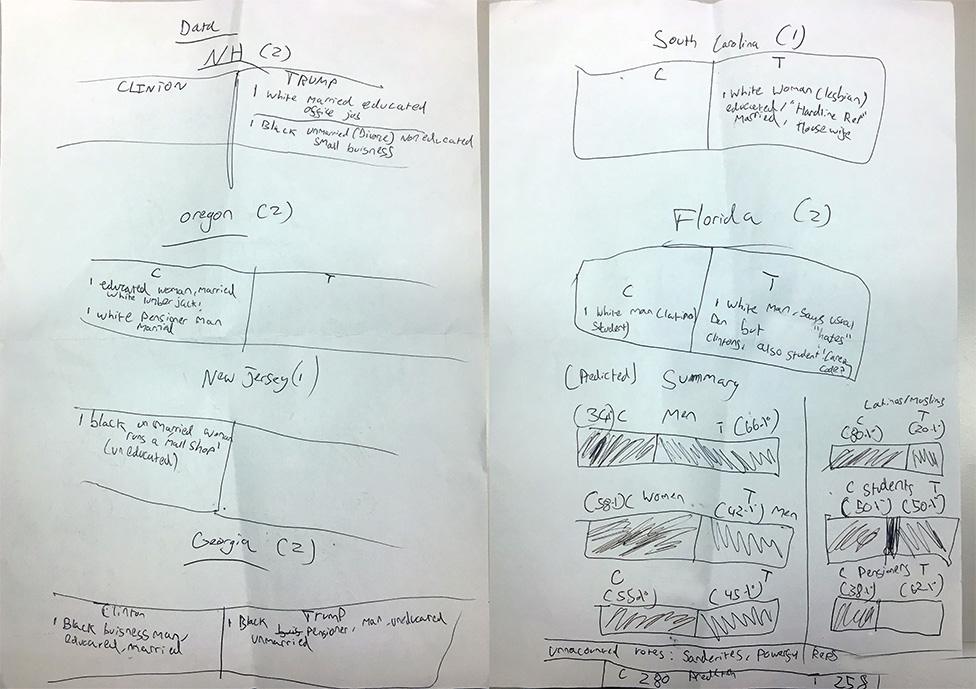Pollsters, Pilates and the politics of labels
- Published

This morning, a throwaway phrase stopped me in the middle of a stomach crunch.
It was during a (liberal, elite) Pilates class - when our (gay, Australian ) teacher addressed the (white, female) participants with the words "Right now girls...".
I think I am breaking no confidences when I say that not one of us in the lesson was aged 11 or under. We were all in our thirties. Perhaps forties. Who's counting?
But I heard the world "girl" and wondered if I should give it a mental rap on the knuckles. Then I realised something that startled me - that I loved being a girl in that class, with all the connotations of youth and stamina and perhaps flexibility it endowed. Ironic, really, that that was the moment the stomach crunch died on me.
Unless I am in Sheffield, the land of my childhood, where everyone still calls everyone else "ducks" (plural, as in "Aright, ducks?") - a term of endearment I never ever want to lose - then I am referred to as a woman. By respectful colleagues, strangers, commentators and the High Street.
It is a word I'm not particularly fond of, but I tolerate it in the understanding it signifies progress. It is - to state the obvious - the nearest equivalent to "man" that we have. It is not diminutive (babe), doesn't infer inexperience (girl) or endless leisure (lady) or sexual promiscuity (take your pick). It is a word that signifies more than mere gender. It is a code of social progression.
It is the same code that decrees we say gay instead of queer, that employs the word "special" euphemistically, that says African-American instead of black, within the United States.
It's a code that is called "political correctness gone mad" by those who hate it, and "progressive" by those who love it. It's a code that pollsters use to explain to us how a country might vote. My own son took this to an (il)logical conclusion in his own election phone polling when he emerged with the Married Female Lumberjacks for Hillary demographic.

Some of the results of Emily's son's telephone polls
And perhaps that's when I should first have realised the problem, the falseness of the premise.
The Progressive Left has perhaps made something of a study out of breaking people down into their demographic groups - their race, gender, religion, sexuality, class. They believe they are being sensitive. Culturally appropriate. Fresh thinking.
But many people don't see themselves in that way at all. And the pollsters have - to mangle a phrase - clung to their labels and their sums. Ron Paul was very telling in his interview with Newsnight , externalearly this week - it's the left, he told us, always trying to put people into little groups. The libertarians leave people alone: "We look at individuals."
It struck a chord - mainly because the "putting people in little groups" thing clearly went rather badly wrong when it came to defining the outcome of the most controversial presidential election of our age.
They looked at Gabriela and saw a Hispanic college-educated female. They assumed because she was not JUST Hispanic but also highly educated and female she would go for Clinton. But Gabriela - whom I've just invented - is also a Catholic or Cuban or a businesswoman or, I don't know, an investor in the coal industry. And so she didn't.

Susan Sarandon went a step further, external. When pressed by Evan Davis about her failure to vote a woman into power she left us with the memorable phrase, "I don't vote with my vagina."
And that surely is the point. If, I - a professional, middle-aged woman - can secretly, longingly prefer being called a girl by a gay bloke who may, for all I know, prefer being called queer, then the labels aren't particularly helpful. They judge. They constrain. They get things wrong.
Emily Maitlis presented BBC Newsnight's coverage of the US presidential election. You can follow her on Twitter, external, watch more of her reports, external, or read more from her on her blog.